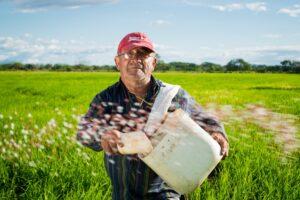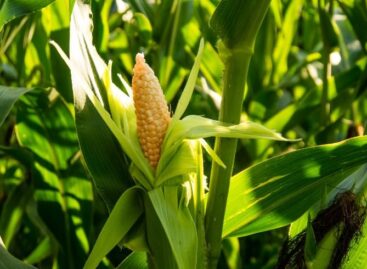Sándor Farkas: the recognition of Hungarian agriculture has never been as good as it is now
The recognition of Hungarian agriculture has perhaps never been as good as it is now – the Parliamentary State Secretary of the Ministry of Agriculture stated on Thursday in Nagymágocs.

(Photo: Pixabay)
Sándor Farkas said at a forum organized by the Csongrád-Csanád county branch of the National Chamber of Agrarian Economy that, in the last decade, Hungarian agriculture has become a priority strategic sector, despite all difficulties, it was able to produce the right amount and quality of safe food. After a difficult period, Hungarian agriculture has recovered in the last 10-12 years, and the support policy enables the dreamed-of developments to be realized, he stated. By 2030, Hungarian agriculture can come very close to, or even catch up with, Western European countries with developed agriculture, the politician emphasized. He explained that the prices of input materials have risen “almost unbearably” in the recent period. Recently, however, fertilizer prices have started to decrease due to the decrease in natural gas prices, but he believed that it was unlikely that they would return to pre-war levels. He pointed out: the domestic grain market has become completely hectic as a result of the import of Ukrainian grain, however – despite the requests of several eastern member states – we do not receive EU support to deal with the situation. The government is trying to remedy the quality problems by strengthening control, said Sándor Farkas.
The new system was adapted to domestic conditions
Zsolt Feldman, the state secretary responsible for agriculture and rural development, explained that the rules of the new agricultural support system were defined in such a way that the EU regulations could be fulfilled as easily as possible in accordance with Hungarian circumstances. By 2027, Hungarian farmers can receive about HUF 5,300 billion in direct agricultural subsidies, but in order to receive them, much stronger green conditions must be met than before. These green regulations appear behind all area-based and animal husbandry-related subsidies with EU funds – emphasized the state secretary. As an example, he mentioned that the soil cover must be maintained after autumn and summer crops. A requirement – with the exception of producers of less than 10 hectares, organic farmers, and the majority of farmers on lawns – is also the mandatory crop rotation on arable land. Every year, a new plant must be grown on one third of every agricultural plot – except for the production of hybrid corn seeds. However, the duly conducted re-election will remove this obligation, the state secretary announced. He added: for this year, due to the Russo-Ukrainian war, producers were temporarily exempted from this requirement, despite this, there are crops whose cultivation is prohibited – primarily for phytosanitary reasons. Farmers – including fallow land – must treat 4 percent of arable land as non-productive land, if certain conditions are met, this ratio can be reduced to 3 percent, the politician said.
The agroecology program is available to all farmers
Taking advantage of the change in EU rules, several types of areas
can be included in the eligible range, such as wetlands valuable from the point of view of biodiversity or tree borders that reduce wind erosion – said Zsolt Feldman. The area-based basic support is around 147 euros per hectare, which is supplemented by a redistributive support for farmers with less than 1,200 hectares. The rate of this is expected to be 80 euros/hectare for up to 10 hectares, and 40 euros/hectare for 11-150 hectares – explained the state secretary. In the case of arable land, lawns and plantations, the producers can decide every year whether to apply for the 80 euro/hectare subsidy by fulfilling the optional good practices – he indicated. Zsolt Feldman said: the support for young farmers will increase to 157 euros per hectare, the size of the eligible area will increase from the current 90 to 300 hectares.
MTI
Related news
Not a turnaround, but consolidation: an agricultural outlook for 2026
🎧 Hallgasd a cikket: Lejátszás Szünet Folytatás Leállítás Nyelv: Auto…
Read more >The guarantee of support for farmers is the preservation of an independent, autonomous agricultural policy
🎧 Hallgasd a cikket: Lejátszás Szünet Folytatás Leállítás Nyelv: Auto…
Read more >Related news
Spring whirlwind at the 60th anniversary EuroShop trade fair
🎧 Hallgasd a cikket: Lejátszás Szünet Folytatás Leállítás Nyelv: Auto…
Read more >Zsófia Bánhegyi is the marketing, communications and public relations director of HUN-REN
🎧 Hallgasd a cikket: Lejátszás Szünet Folytatás Leállítás Nyelv: Auto…
Read more >Bonduelle achieves B Corp™ certification worldwide
🎧 Hallgasd a cikket: Lejátszás Szünet Folytatás Leállítás Nyelv: Auto…
Read more >








